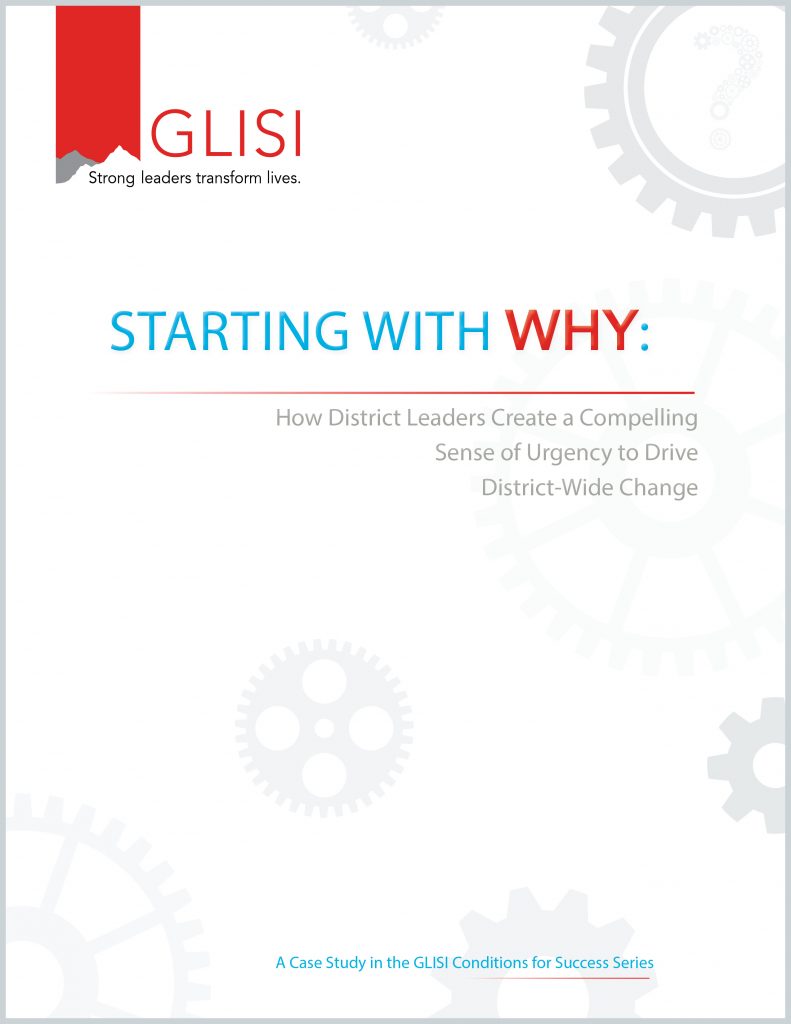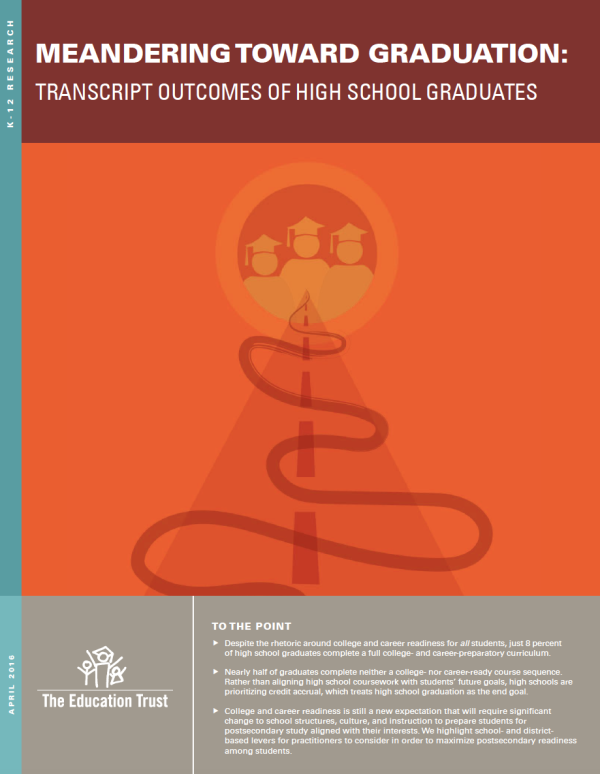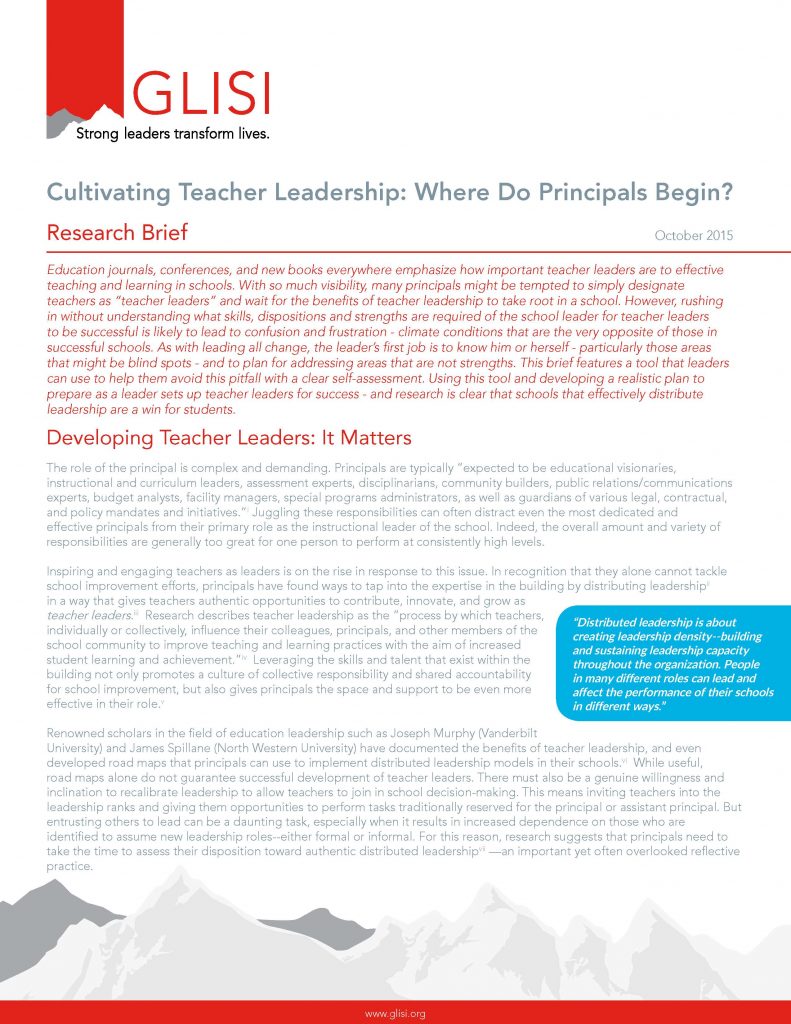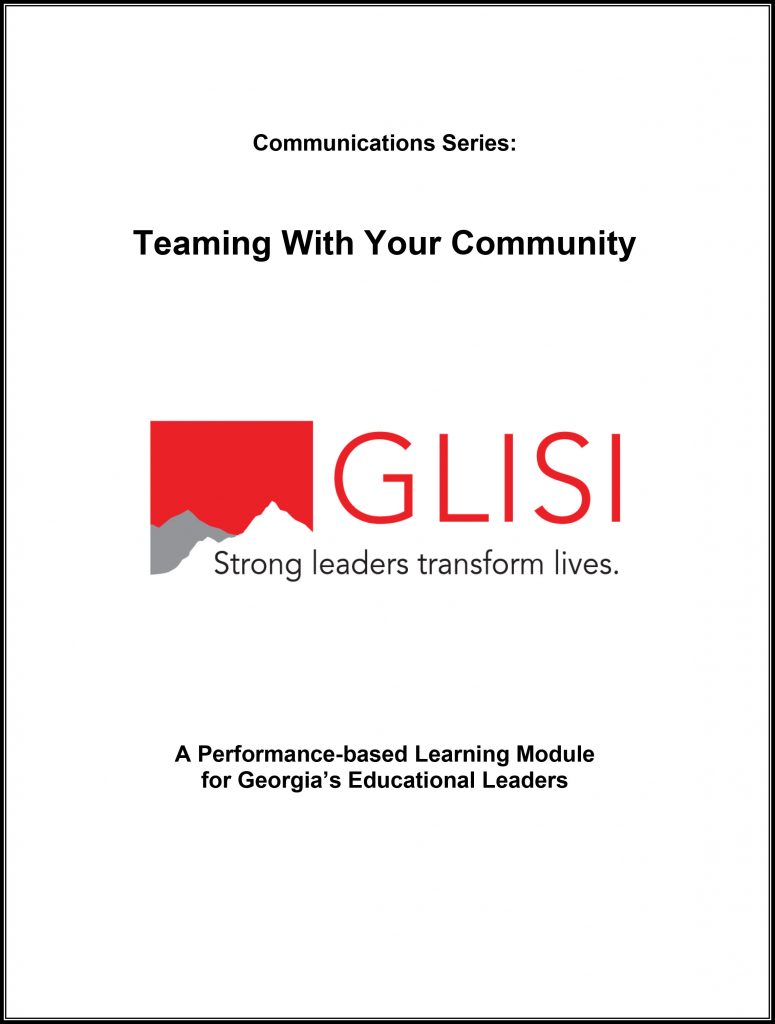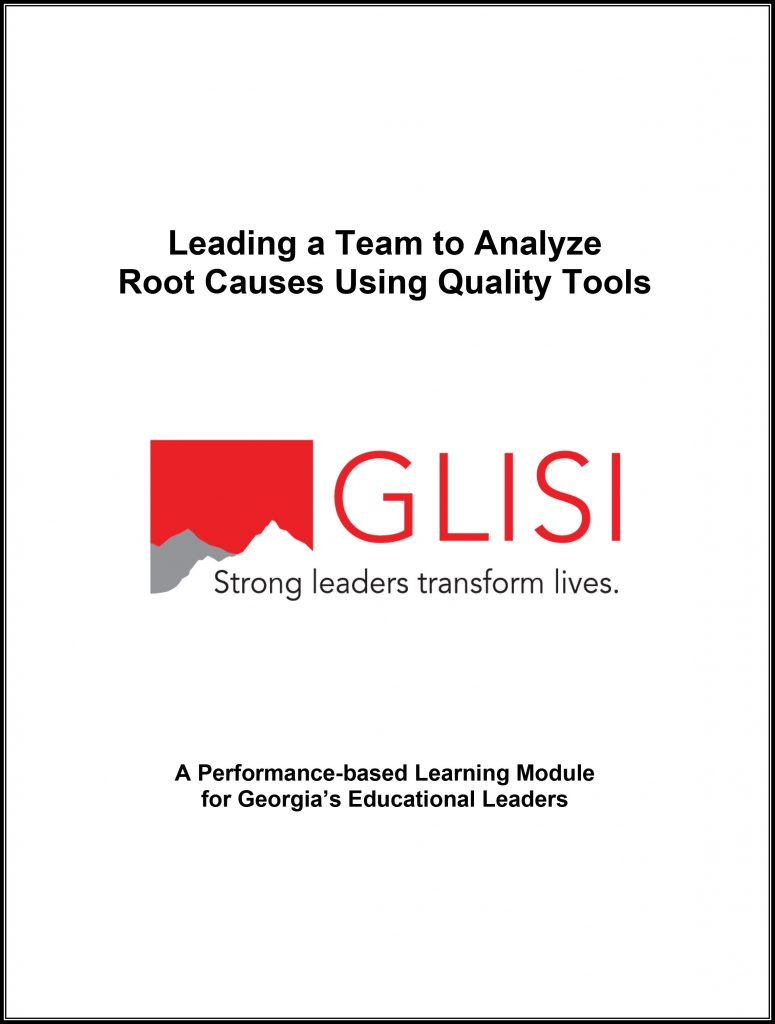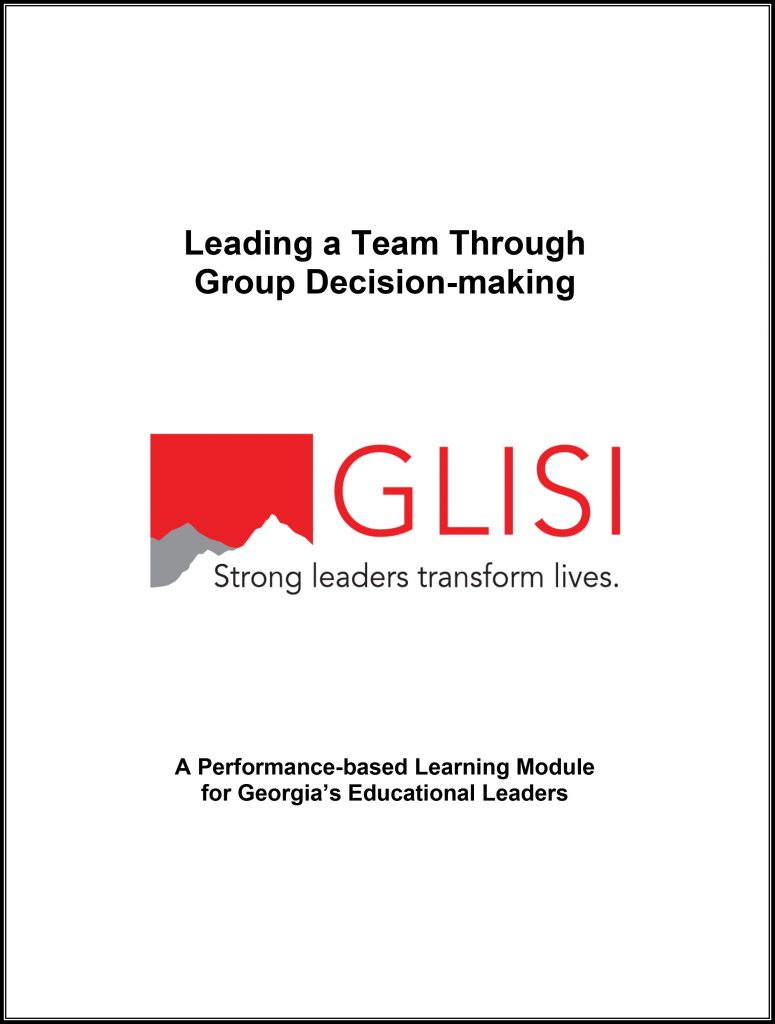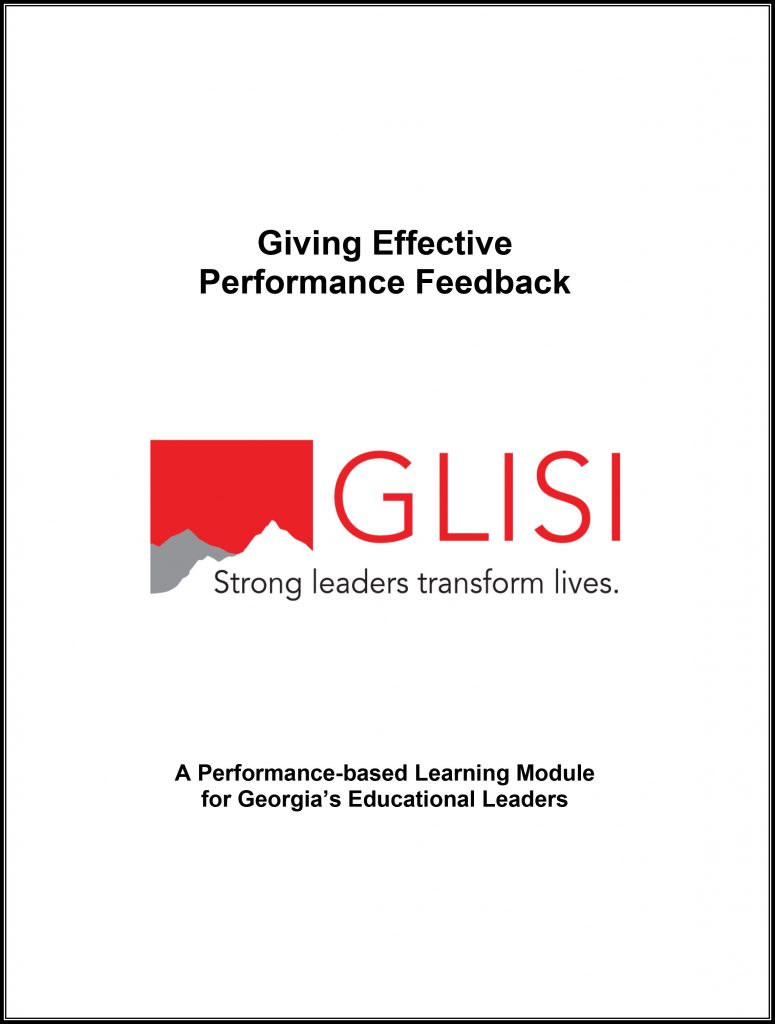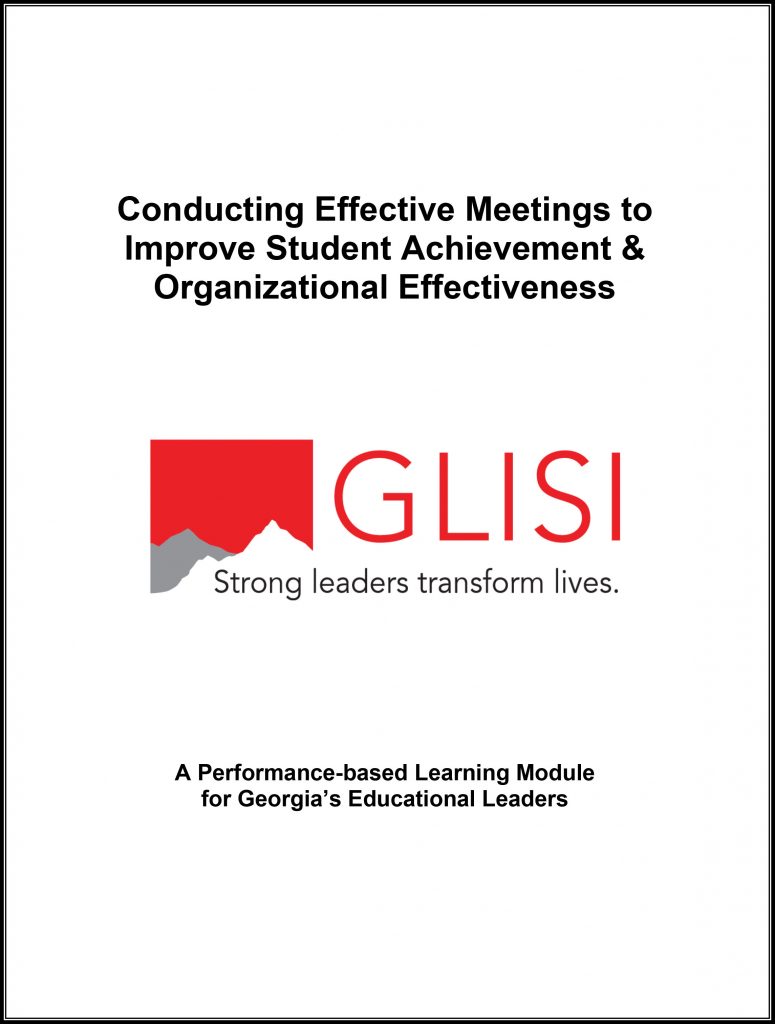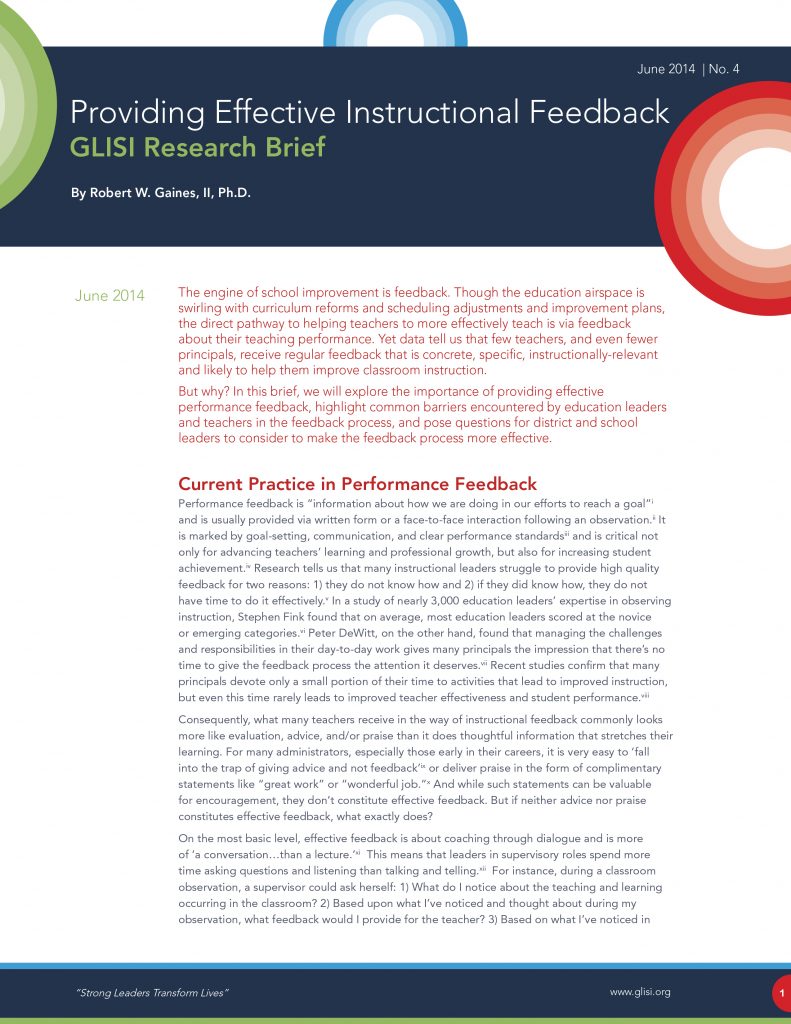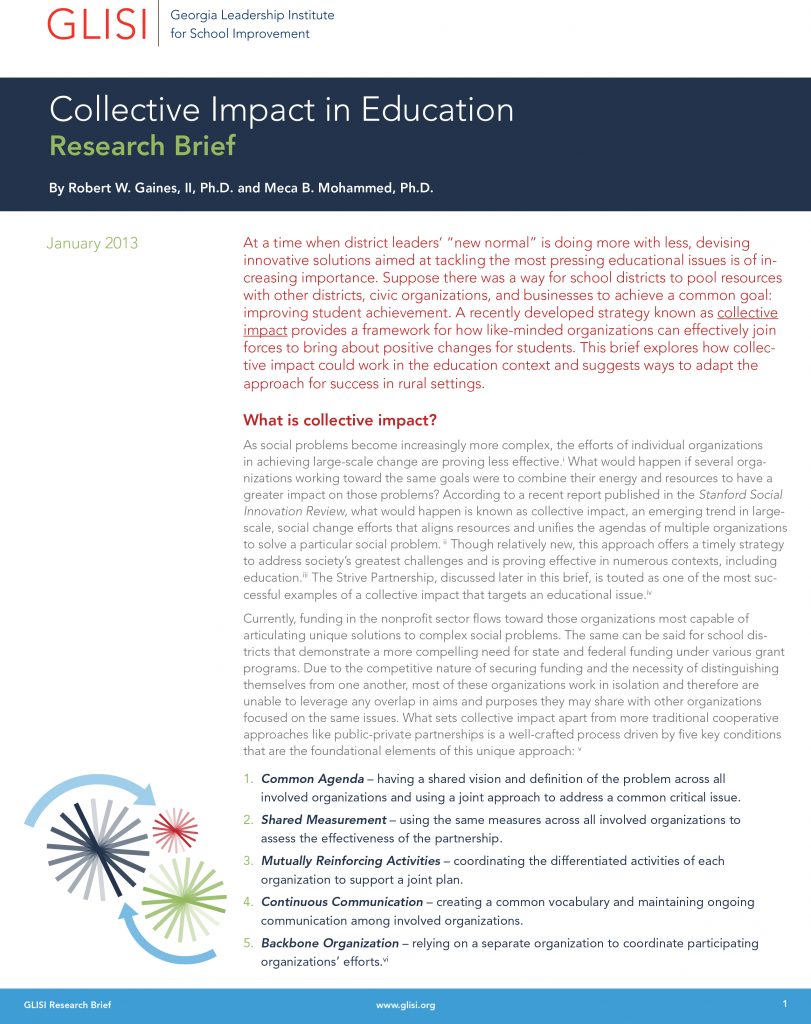GLISI curates cutting-edge research, reports, and in-house publications to support the development of leaders from the classroom to the school building to the central office.
Select the applicable leader key and leader type in the filter to find relevant resources for your needs.
How did leaders in a rural school district in middle Georgia consistently improve math outcomes for traditionally underperforming students? That is the driving question of GLISI’s third report in it’s Conditions for Success case study…
Read MoreWhat happens to students’ post-secondary dreams when schools aren’t equipping them with the foundational knowledge and skills needed for college and career success? Meandering Toward Graduation, a report from EdTrust explores that issue, highlighting the gulf…
Read MoreEducation journals, conferences, and new books everywhere emphasize how important teacher leaders are to effective teaching and learning in schools. With so much visibility, many principals might be tempted to simply…
Read MoreEvery school is part of a community. The official attendance area obviously includes the dwellings for the school’s students and their parents or guardians. It also includes a variety of…
Read MoreTo find the right solutions for deficiencies in students’ achievement, those who are working to solve the problems must determine what problem they are trying to solve, and the true…
Read MoreIn this performance-based module, you will learn to lead your team through the process of making good decisions. The team will be involved in generating ideas, narrowing the list of…
Read MoreFeedback is a response to a particular process or activity and is intended to provide useful information for future development. Performance improvement is largely dependent on frequent and specific feedback.…
Read MoreConducting Effective Meetings is a Performance-based Module containing specific strategies and tools for improving the efficiency and productivity of group members in completing work assigned to them in a team…
Read MoreThe engine of school improvement is feedback. Though the education airspace is swirling with curriculum reforms and scheduling adjustments and improvement plans, the direct pathway to helping teachers to more effectively teach is via feedback about their teaching performance. Yet data tell us that few teachers, and even fewer principals, receive regular feedback that is concrete, specific, instructionally-relevant and likely to help them improve classroom instruction. But why? In this brief, we will explore the importance of providing effective performance feedback, highlight common barriers encountered by education leaders and teachers in the feedback process, and pose questions for district and school leaders to consider to make the feedback process more effective.
Read MoreHow can districts make their partnerships designed to improve student learning more effective? One new promising strategy is collective impact. Collective impact is a recently developed strategy that shows how like-minded organizations can join forces to bring about long-lasting positive change in their communities. Particularly, this brief examines how collective impact works in an educational context to improve student achievement and suggests ways to adapt the approach for success in rural settings.
Read More- « Previous
- 1
- 2
- 3
- 4
- Next »

